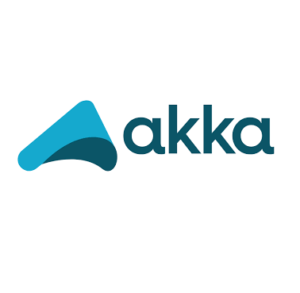
Akka Cloud Platform Now on AWS

Java and Scala developers who want an easier way to build distributed applications without all the muss and fuss of synchronizing locks and managing state will be interested to learn that Lightbend is now making its Akka Cloud Platform available on the AWS cloud.
Jonas Bonér created Akka over a decade ago to provide a framework for developing concurrent and distributed applications based on the “actor model,” a non-deterministic computing model that originated in the 1970s. By basing computational tasks on the actor primitive and assuming all actors manage their own state and all communications among actors happens asynchronously, among other things, the actor model provided a path to build complex, distributed applications that are stateful and concurrent.
Bonér released the first version of Akka in 2009, with support for the JVM, and since then, the open source Akka project has been downloaded 10 million times, according to Lightbend, the company Bonér co-founded to develop and support Akka. Since then, the Akka project (which was written in Scala but also supports Java) has expanded into a full platform for reactive microservices that are resilient from failure and self-healing, the company says.
Along the way, Akka has found its way into a range of projects. Apache Spark used Akka for communication between nodes until version 1.6, and the Apache Flink stream processing framework is still based on Akka. The toolkit is often used alongside other Java-based frameworks and databases, including Apache Cassandra and Apache Kafka. Akka is used to develop applications for IoT, machine learning, real-time streaming analytics, and digital twins.
The new Akka Cloud Platform that Lightbend unveiled today is based on its Akka Platform and includes the core building blocks for building reactive microservices that are stateful and leverage the scale of the Web. The offering includes an operator for Elastic Kubernetes Service (EKS), as well as pre-build integration for persisting data (to S3, Kafka, or Cassandra), and sourcing event, streaming, telemetry, and observability data.
The offering opens the door for users to develop reactive applications (defined by Bonér as responsive, resilient, elastic, and message-driven) that have the scale of AWS behind them. Starbucks, Verizon, Tesla, and PayPal–not to mention Epic Games’ popular Fortnite franchise–all use Akka to achieve scale with their microservices-based Web applications.
“Akka gives developers the building blocks they need to develop cloud native applications without having to worry about the challenges of designing for a massively scalable environment,” Lightbend CTO Bonér says in a press release.
“Cloud native is about much more than just the infrastructure layer,” he continues. “It’s also about the application architecture that handles things like performance, intelligent scaling, service failure, and streaming data pipelines. Now any developer using AWS can easily leverage the same powerful distributed computing technology that powers many of the world’s most innovative companies.”
More information on the Akka Cloud Platform for AWS is available here. The plan is for Lightbend to support Google Cloud next.
Related Items:
Inside Fortnite’s Massive Data Analytics Pipeline
Rethinking Log Analytics at Cloud Scale
Real-Time Streaming for ML Usage Jumps 5X, Study Says































